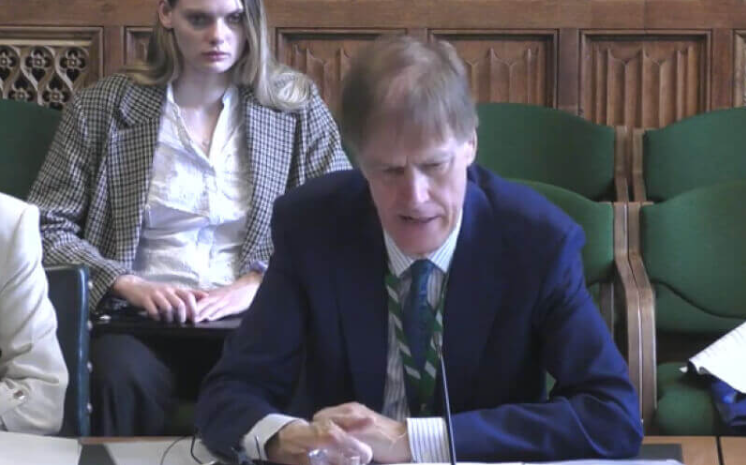Minister finally admits that working-age benefits spending is stable, despite months of ‘spiralling’ claims
A minister has finally admitted that spending on working-age benefits is stable, and is not spiralling out of control, despite months of claims from his own department and fellow ministers.
Sir Stephen Timms made the admission as he told the Commons work and pensions committee that ministers had decided not to carry out a public consultation on the billions of pounds of cuts to personal independence payment (PIP) and the disability element of universal credit because of the “urgency of the changes needing to be made”.
He was giving evidence in the committee’s final session of its inquiry into the government’s Pathways to Work green paper.
Sir Stephen, minister for social security and disability, said that spending on PIP had risen in real terms from £12 billion in the year before the pandemic to £22 billion last year, which he said was “not a sustainable trajectory”.
But the committee’s chair, Labour MP Debbie Abrahams, asked if he accepted the evidence of Ben Geiger, professor of social science and health at King’s College London, who had told the inquiry that working-age social security spending had remained at about five per cent of GDP* for the last decade.
Abrahams also asked Sir Stephen if he accepted that the rise in the number of PIP recipients has been due to demographic change, the nation’s poor health, and the increase in the state pension age.
The minister replied: “Well, yeah, I mean, much of what you say, I completely accept.”
He added: “I think that working-age social security spending as a percentage of GDP isn’t much more now than it was before the 2008-2010 recession, but as you say, the share on disability and incapacity benefits is very substantially up.”
He said most of this increase was in the last six years, and that while the “incidence of disability” had risen by about 17 per cent since just before the pandemic, the incidence of “benefit claiming” had risen by 34 per cent.
Abrahams suggested an explanation for this was that more disabled people were needing to claim PIP because of financial pressures.
Sir Stephen agreed, and suggested that the government needed to cut spending on PIP, even though disabled people were only claiming it because they were struggling due to the cost-of-living crisis.
He said: “I think you’re absolutely right. I’m sure that the cost-of-living challenges are a very big factor in what’s happened.
“The people who may well have always been eligible but have not in the past claimed benefit are now doing, and that’s what’s driven this very substantial increase.
“As I say, the current trajectory is not a sustainable one and it is not in the interest of people who depend on PIP for it to be on a financially unsustainable trajectory.”
Disability News Service reported in February that claims by ministers, opposition politicians and the media that social security spending was “spiralling out of control” were false and “ideological”.
Last August, chancellor Rachel Reeves said the previous government had “let welfare costs spiral out of control”.
In January, the Department for Work and Pensions (DWP) said in a press release on benefit fraud that it wanted to “tackle the spiralling welfare bill”.
And in February, in a press release on disability employment, DWP claimed again that benefits spending was “spiralling”.
*Gross domestic product, the size of the country’s economy in a particular year
Credit for this article goes to John Pring with the Disability News Service


No responses yet